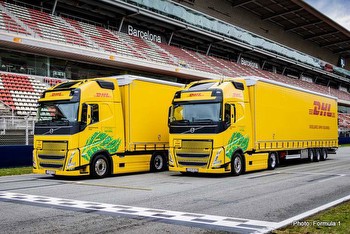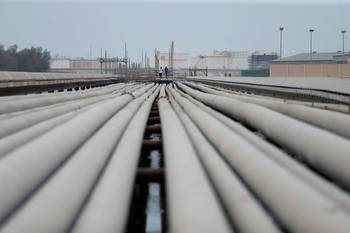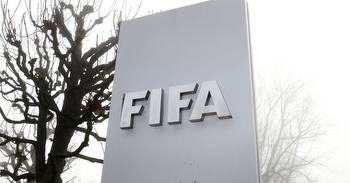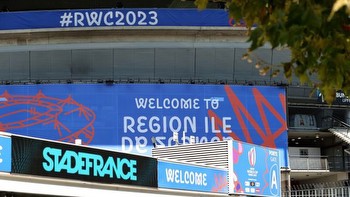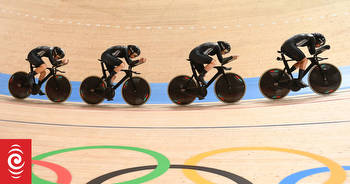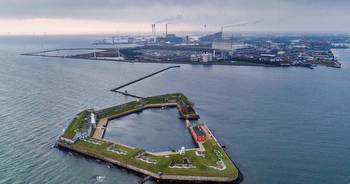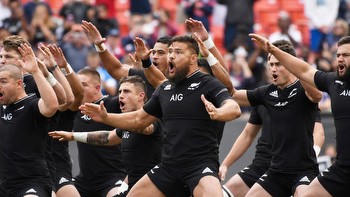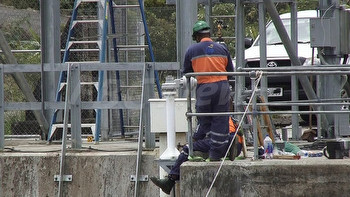Rugby World Cup 2023: Oil companies should not sponsor World Cups, says David Pocock

Fuel companies are using sport to "greenwash their image" and should not be allowed to sponsor World Cups, says former Australia captain David Pocock.
French oil company TotalEnergies is one of the main sponsors of the 2023 Rugby World Cup, which begins on Friday in Paris.
Pocock told the BBC he believed the message should be "you can't sponsor us unless you have a legitimate decarbonisation plan, and you are transitioning your business".
In response, a statement from TotalEnergies said it was "wrong" to claim its sponsorship was "greenwashing".
It added that by the end of 2023 the company "will invest nearly five billion euros in renewable and low carbon energies by 2023 and will therefore, for the first time, devote more investments to low-carbon energies than to new hydrocarbon projects".
Pocock, who captained Australia at the 2019 World Cup, is now an independent senator in the Australian Capital Territory and a passionate campaigner on climate change issues.
He was speaking exclusively to BBC Sport for a Radio 5 Live special 'Rugby Tackles the Climate Challenge' on Thursday.
Former flanker Pocock describes the climate crisis as "probably the biggest problem we face as a species" and after the European summer we have just experienced as a "critical moment in history".
World Rugby chief executive Alan Gilpin said: "We recognise there is a challenging debate around them as a sponsor and as a fossil fuel company."
However, Gilpin confirmed that the deal was agreed by the 2023 local organising committee in France and not the sport's governing body World Rugby, before adding that there would be "a slightly different model for hosting" after this World Cup.
That would give World Rugby "full responsibilities for delivering how that tournament is managed and run and that gives us again the ability to take a different approach to the responsibilities around sustainability".
The new model will be in place by the next women's Rugby World Cup in England in 2025.
Focus for that tournament and its execution will be World Rugby's Environmental Sustainability Plan that aims to halve its carbon emissions at Rugby World Cups by 2030.
In the week building up to the start of the tournament, Greenpeace released a graphic video of the Stade de France filling up with oil in protest against the Total Energies sponsorship deal.
In response to the video, a World Rugby spokesperson said: "Tournament delivery supports World Rugby's Environmental Sustainability Plan 2030, centring on low-carbon mobility such as trains, and the use of existing infrastructure for competition and training venues to reduce the event's carbon footprint."
In France, the government has banned short-haul domestic flights that are possible in less than two and a half hours on trains, and teams at the World Cup will be predominantly using coaches and trains as a result.
No new stadiums have been built for the tournament and existing buildings that are fit for purpose are being utilised.
The example for this is the Roland Garros tennis complex being used as World Rugby's main media centre in Paris.
There will also be a reduction in single use plastics at stadiums with fans encouraged to use public transport to matches.
While Pocock praised many initiatives by World Rugby, including it not relying on off-setting, he concluded that removing fossil fuel sponsorship was key.
"It would mean that companies that are essentially betting on us not taking climate action couldn't put their logos front and centre with your favourite team, or this huge sporting event," he said.
"That would be the most impactful thing and it would send such a strong message."








